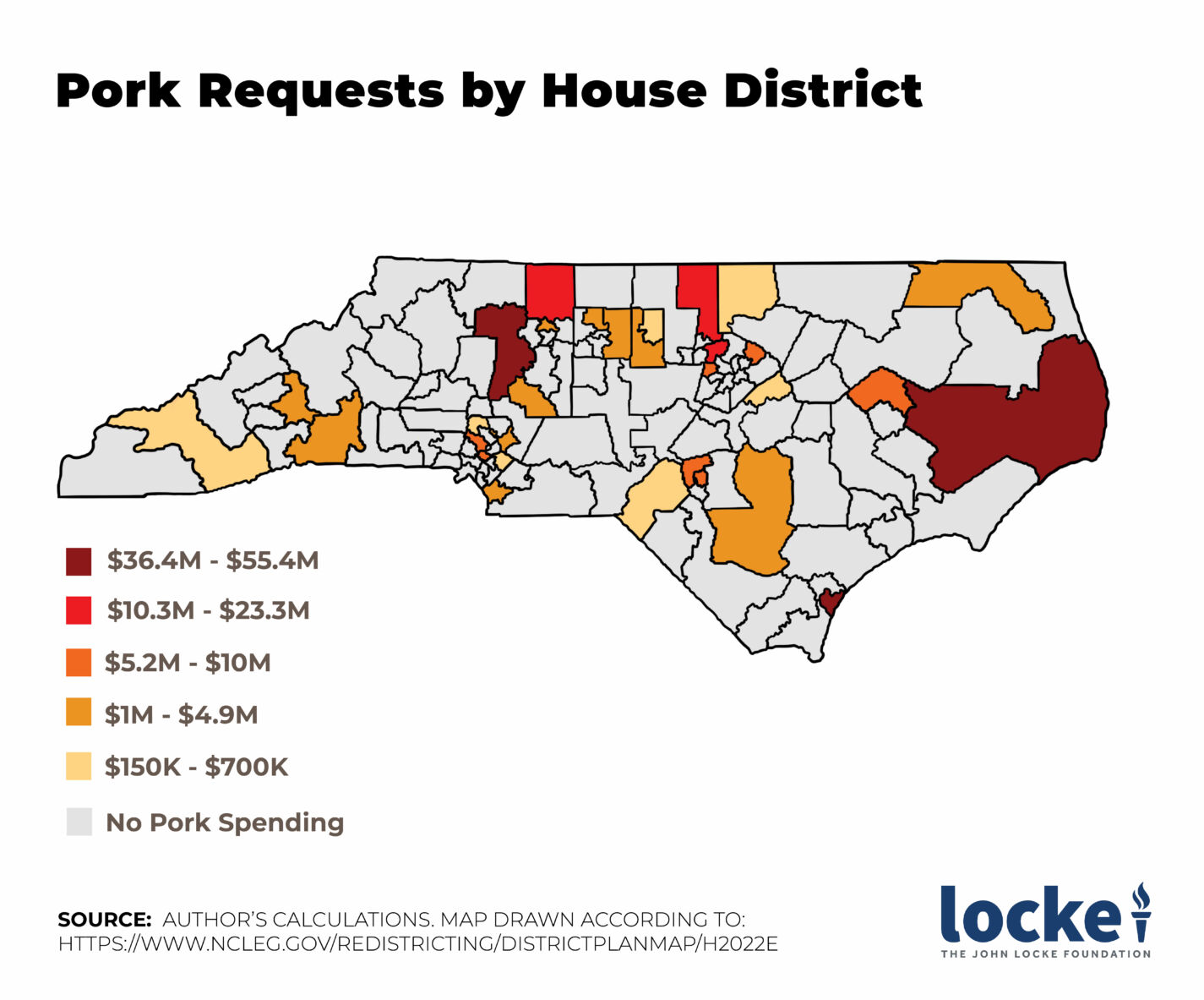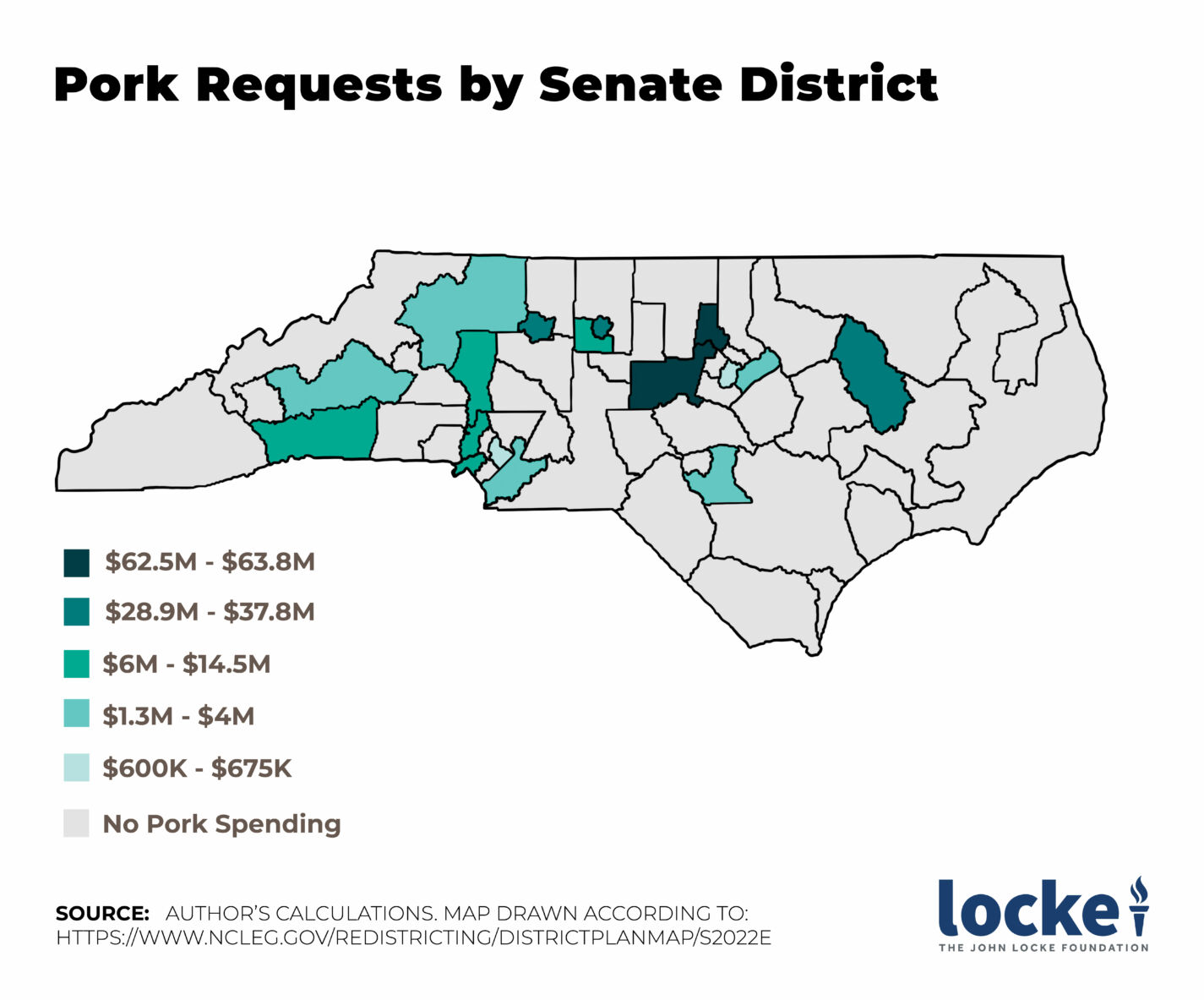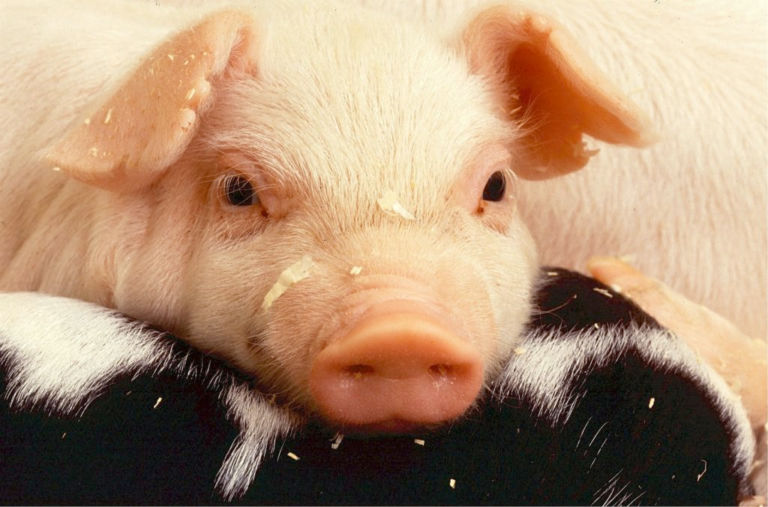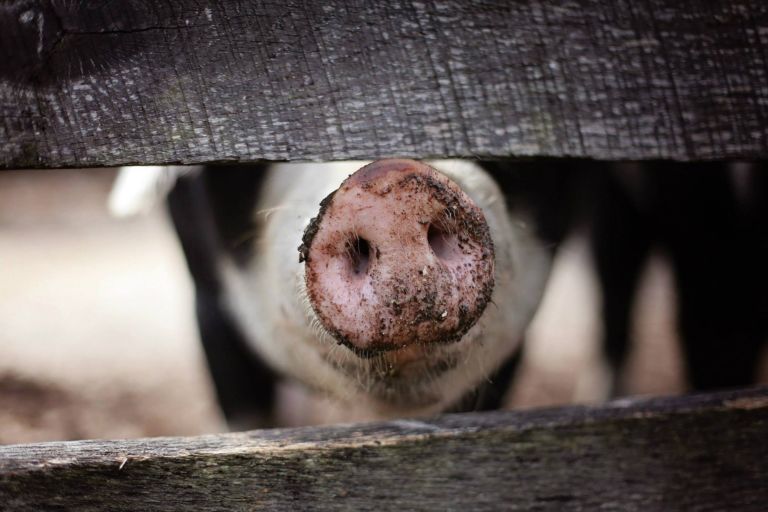Special provisions continue to thrive in North Carolina. The last biennium budget was loaded with special projects, and the forthcoming one may be no different.
These special provisions, also often called earmarks or pork spending, are spending projects not in support of core government services. They are pet projects for lawmakers with funding diverted to chosen areas for local items. No matter how suitable to a community these provisions might be, their funding at the state level is inappropriate. Pork spending undermines local authorities, agency grant processes, and private competition.
Moreover, as Locke President Donald Bryson put it, “if the state government is spending money on things that are not core government functions, then it is taxing citizens beyond what is necessary.”
Once these pork spending projects make it into the budget, the names of the requestors are no longer attached to them. The John Locke Foundation has argued for greater transparency in the budget process. Enacting the Insko Rule would increase transparency and encourage responsibility by requiring each requesting member’s name to be indicated with a special provision in the state budget.
The charts below show the pork projects requested in bills filed during the current legislative session. The appropriation requests may or may not make it into a final budget. Right now, they are merely a wish list – but a list we can learn from.
I have pulled the special provisions requested from individual bills from the onset of the current legislative session to May 6th. Below, I have divided the bills by party, member, and requesting member’s district. The comprehensive list of pork can be found here.
Democratic candidates requested to spend roughly 40% more than Republican candidates:
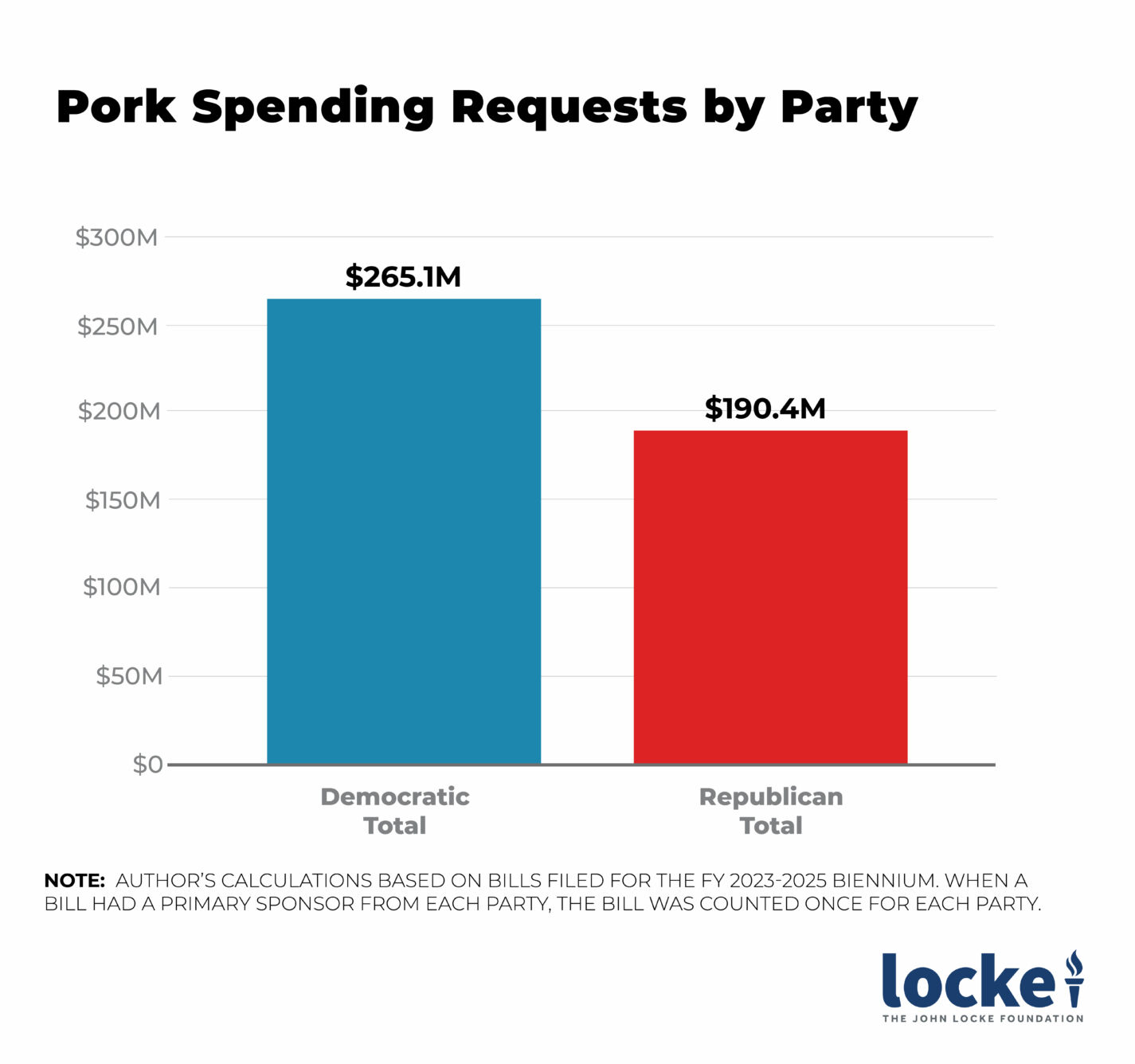
North Carolina House members requested to spend roughly $270 million on pork projects, while state Senate members requested $293 million. Below see a breakdown by House and Senate members. If a bill requesting pork spending has multiple sponsors, the spending total of the bill is assigned to each sponsor.
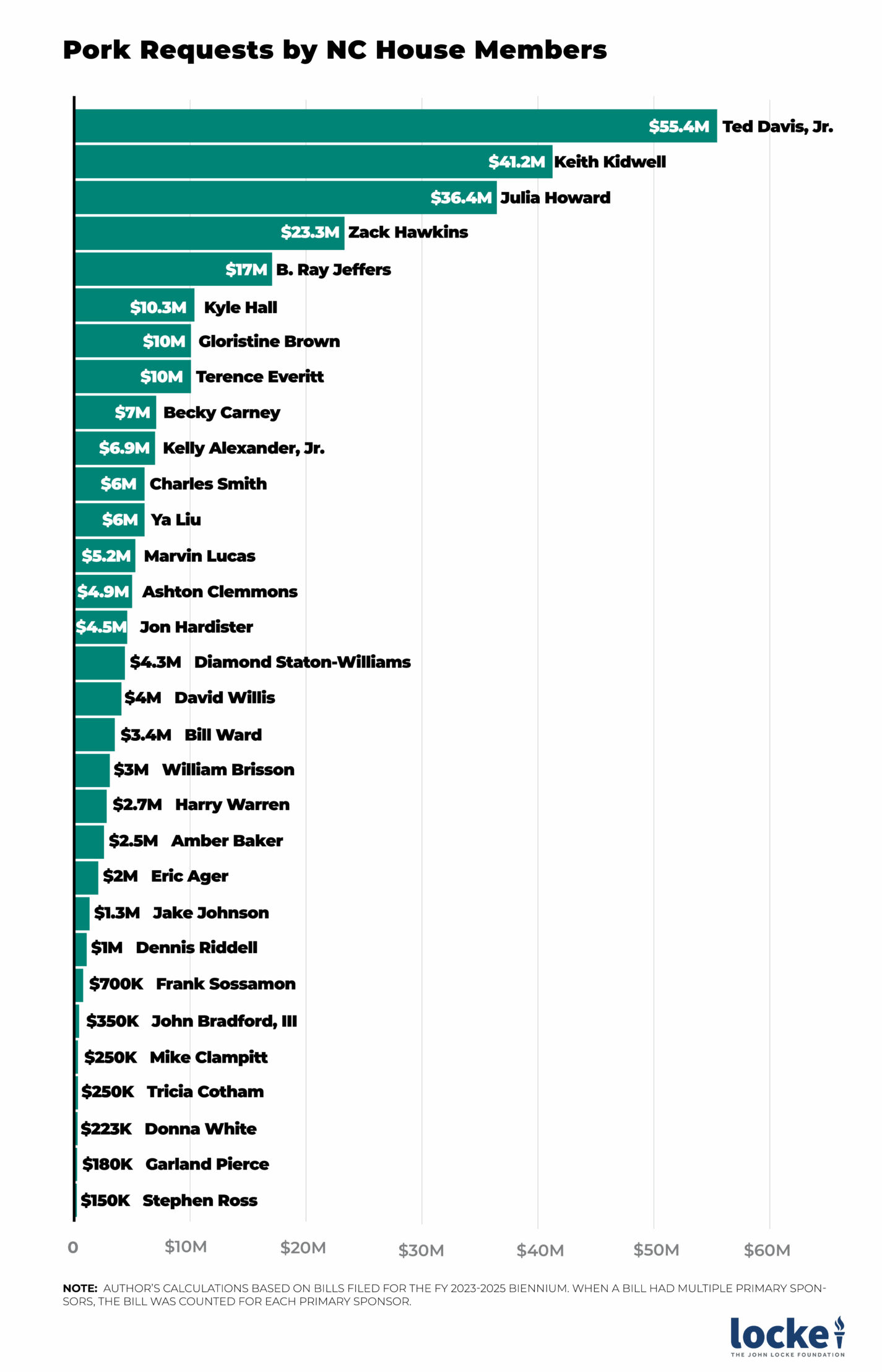
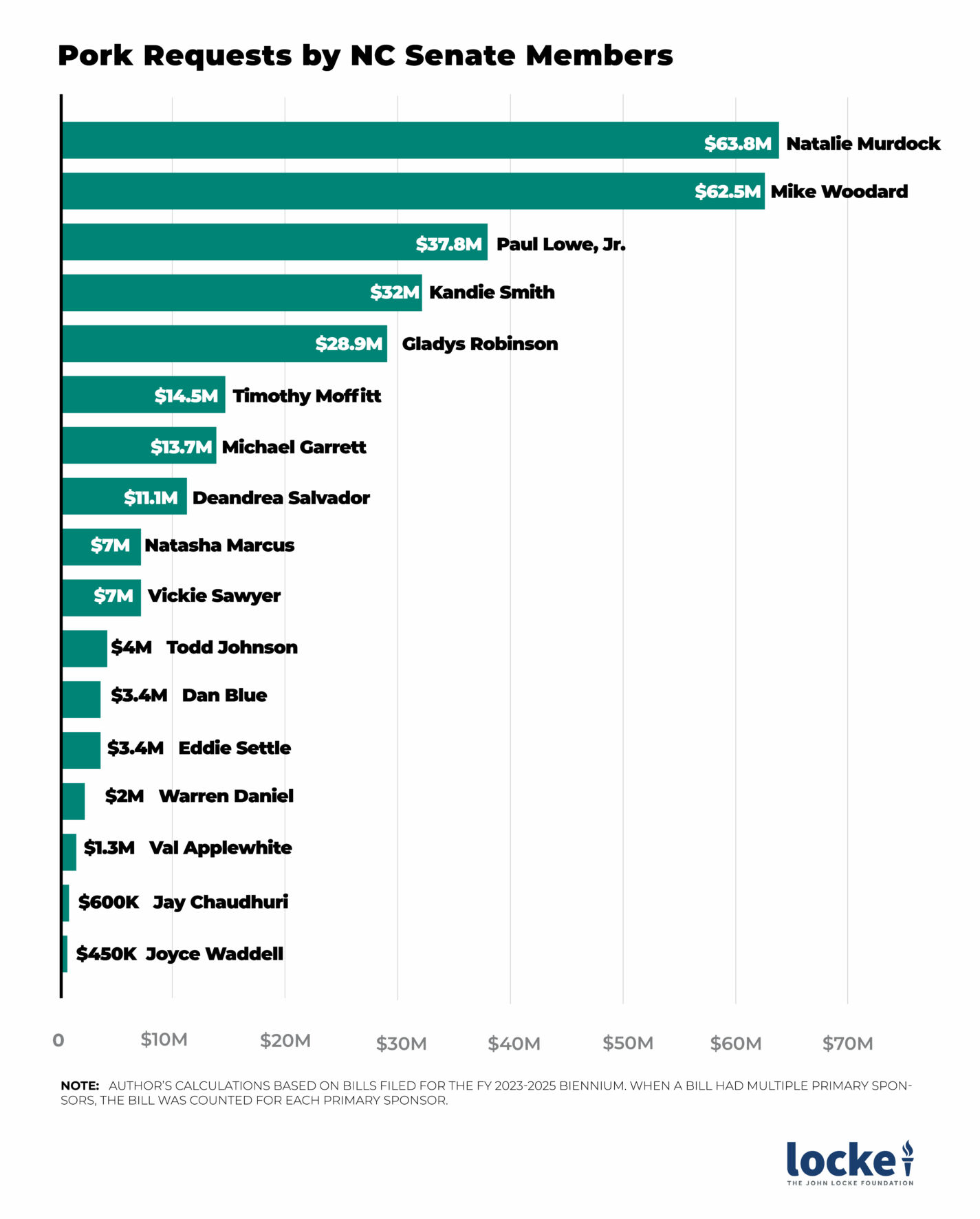
Looking at the pork spending by requesting members’ districts was revealing as a surprising amount of districts received no pork spending requests at all. This underscores the political favoritism of pork projects, even if the projects themselves are for useful causes. State money should be spent for statewide projects.
